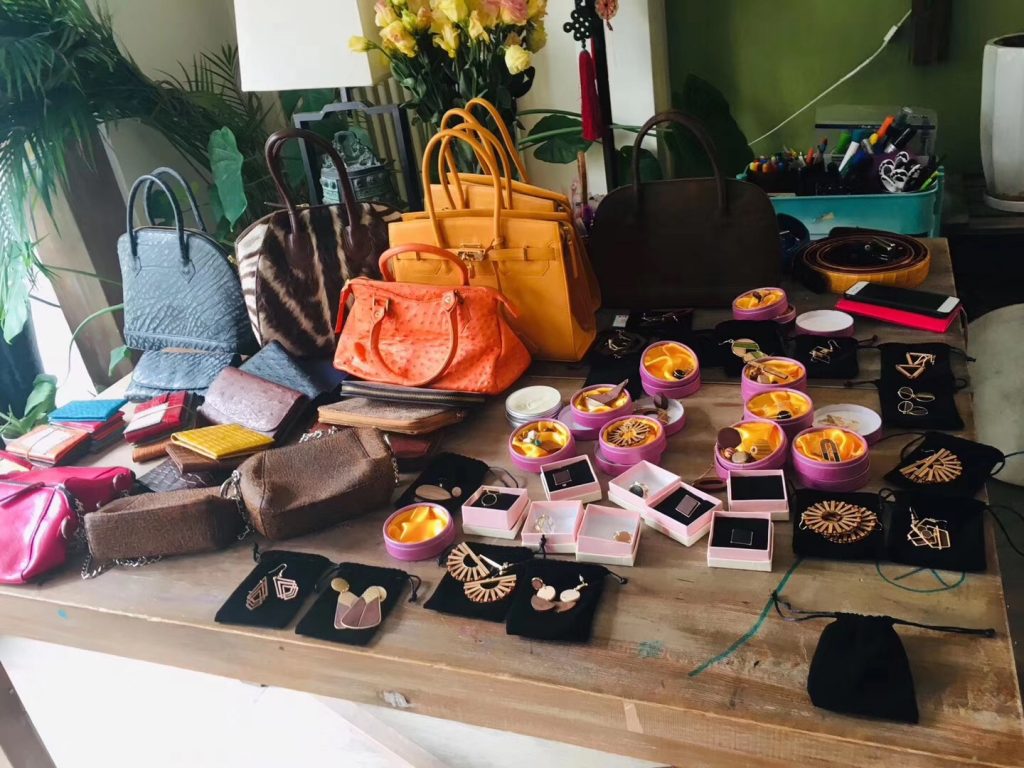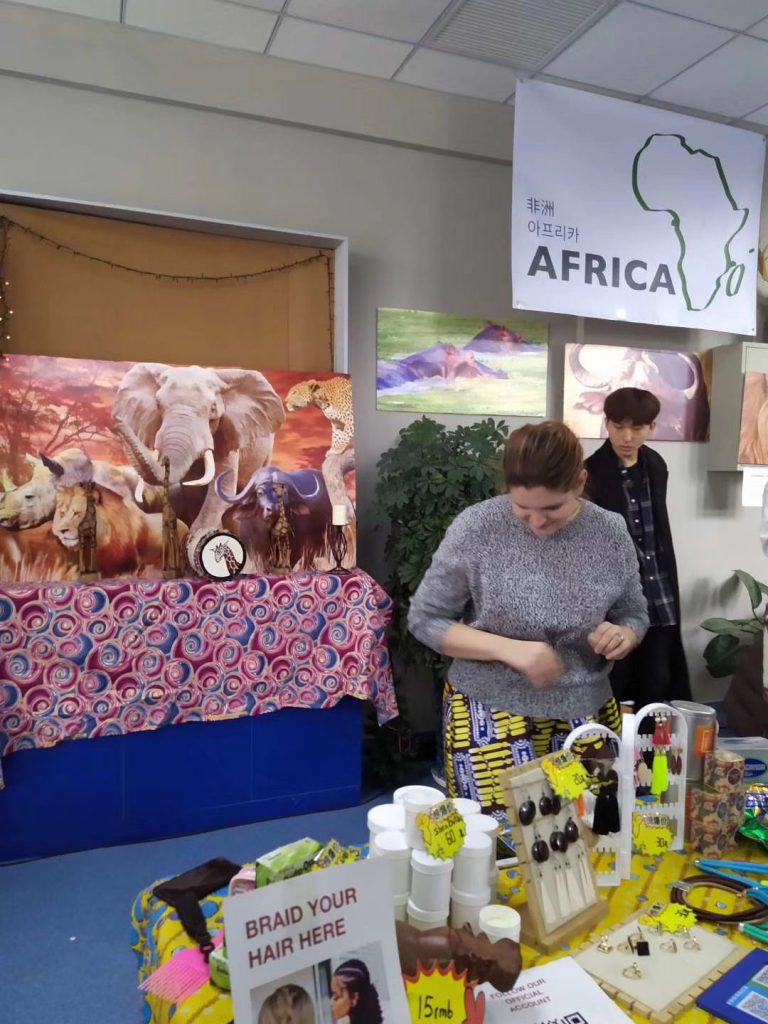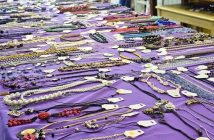The last few years have seen the world’s fashion elites fall in love with the everything Africana. From colorful Kente fabric prints, to bold West African headpieces, African fashion and accessories have firmly taken center stage in the global fashion industry. This shift has been slower to impact the Chinese market in particular, where big western brands are still prized, and gold is still an accessory king, but one just has to walk down the Sanlitun high street to see trendy youths, both local and foreign, spotting afro-fusion pieces.

Gumbu sources many of her pieces from Mozambique, Zimbabwe, and Ghana
Entrepreneurs like Polina Gumbu are partially responsible for this injection of African art and fashion into China’s fashion-obsessed market. Gumbu, originally from Kazakhstan, has been in the business of sourcing and supplying beautiful pieces for several years, mainly from Mozambique, Zimbabwe, and Ghana. But her pieces aren’t your average gaudy statement pieces or tourist tat sold on African beaches. “The jewelry I sell is mostly made of wood or stone. I am trying to include different regions of Africa and different jewelry making techniques, such as weaving, woodcraft, stone craft, beading,” explains Gumbu, who used her Zimbabwean husband’s already established arts and crafts trading network to get a foot into the world of African accessories.
Like most who are drawn to African art and fashion, Gumbu is the first to admit that she was first attracted by the boldness and authenticity infused in each creation. “I have always loved jewelry, but my main goal was to get affordable jewelry that doesn’t break the bank. African culture and colors always inspired me, and getting into that culture has shown me that many people are unaware of the beauty of African inspired jewelry and crafts. It is always vibrant, loud, and makes a statement, so I wanted to bring that to the Chinese market.”

“Look for jewelry that tells a story and makes a statement.”
It’s however not easy being a mom and running an import business that demands time, dedication, and tons of planning. “Sometimes it’s really hard to do business and be a mom, but with the help of my husband we always find a way to work around parenting and building a business,” Gumbu says. She has been in Beijing for fifteen years now, which she credits to giving her an understanding of not only how the Chinese market works, but also how to leverage herself and her unique products. Key to this success is also a sound understanding of the people behind the pieces she sells, as well as the materials they use. As the world becomes increasingly aware of the adverse effects of the jewelry industry on the environment, ethical fashion is no longer just a buzz word or marketing gimmick but a minimum requirement for many a consumer. And the idea of ethical fashion stretches beyond the materials used and how they are harvested, to showcasing cultures with authenticity rather than culturally appropriating aspects of said cultures for the end goal of fashion. When done right, Gumbu says “ethical fashion and jewelry is an amazing way to educate people about various cultures while showcasing customs and traditions.”

“many people are unaware of the beauty of African inspired jewelry and crafts”
Gumbu’s passion for African jewelry extends to the artisans themselves though women empowerment initiatives, as she strives to work with young women in these source countries, intending to expose them to the Chinese and global markets. And for those looking for advice on how to find the right statement piece for themselves or even break into Gumbu’s industry, she says “Look for jewelry that tells a story and makes a statement.”
To get in touch with Gumbu, scan the QR code below:

KEEP READING: Nani’s African-Inspired Jewelry and Accessories in Beijing
Photos: Polina Gumbu




